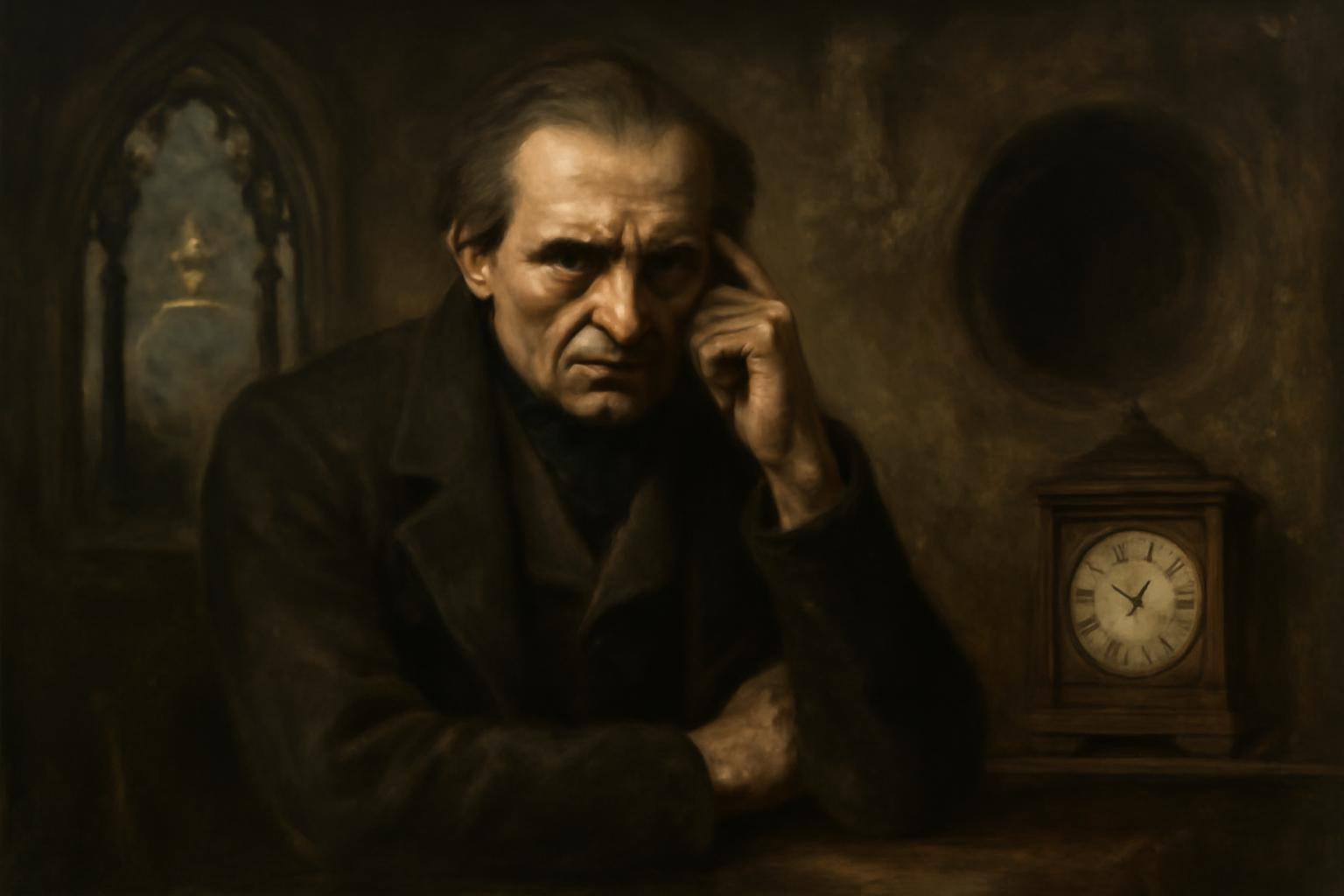The life of Horst Mahler—what wretched testament to the evolving mask of fanaticism! Born of prayers for Hitler’s deliverance and cradled in the spiritual confusion of a defeated Reich, Mahler emerges as a creature molded entirely by the tragic dialectic of 20th-century German horror. Childhood devotion to the Führer, shrouded in the pathos of familial suicide and migration, festered and sharpened into an adult obsession with the ceaseless struggle, a will toward extremity, whether beneath the crimson banner or the iron swastika.
How Nietzsche would have sighed at such a figure, ever distant from the delicate, terrifying grace of the Übermensch, forever entrapped instead in the prison of ressentiment, shifting frantically left and right as if cleaving eternally to the puppet-strings of an absent god. After his ascension from star student to revolutionary lawyer, from Marxist apologist to terrorist, and then, as if in tragic parody, to the embrace of the far right and its festering resentments, Mahler’s career becomes a grotesque spiral—Orestes haunted not by the Furies but by the spectral shadows of both Berlin’s barricades and Nuremberg’s rallies.
Here is the pitiful spectacle of modern man—a soul in perpetual revolt, unable to abide the tranquil torpor of the bourgeois existence, seeking meaning not in private virtue or works of culture but only in the grim intoxication of violence and denial. He is the child of catastrophe: a man fleeing the collapse of order yet endlessly compelled to recreate the ruin within himself.
Mahler’s intellectual wanderings evoke the sorrows of philosophical pessimism: how little we have learned since the tragedies of Aeschylus and Sophocles, how meager our progress since Nietzsche gazed into the abysses of European nihilism and found not a dawn, but a night bristling with counterfeit saviors and exhausted dogmas. What is this life but a theatre of the absurd where the actors, unable to bear the weight of freedom, exchange one totalism for another, seeking, as Schopenhauer lamented, an illusion strong enough to anesthetize the thirst for eternity?
Amidst the ruins of Western culture, the ghost of Mahler testifies to our deepest malaise: that of a civilization unmoored, lost between the Scylla of memory and the Charybdis of oblivion, inhabited by ideologues for whom every truth is provisional and every crime an act of faith. The ancient chorus weeps; the gods are silent; and the world, growing older, spins on—ever more weary, ever more diminished.
